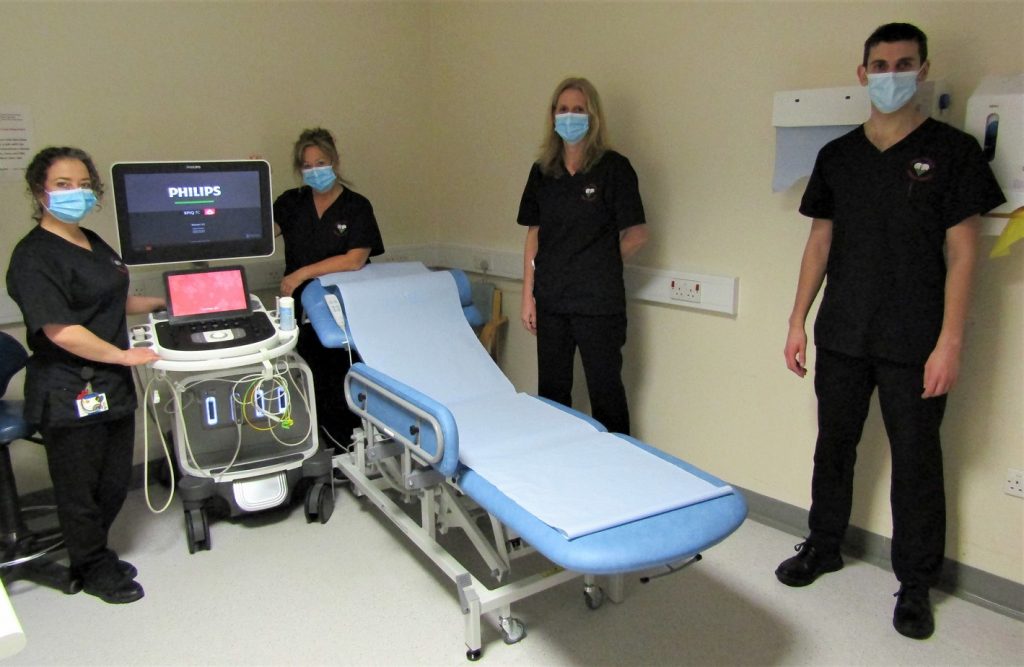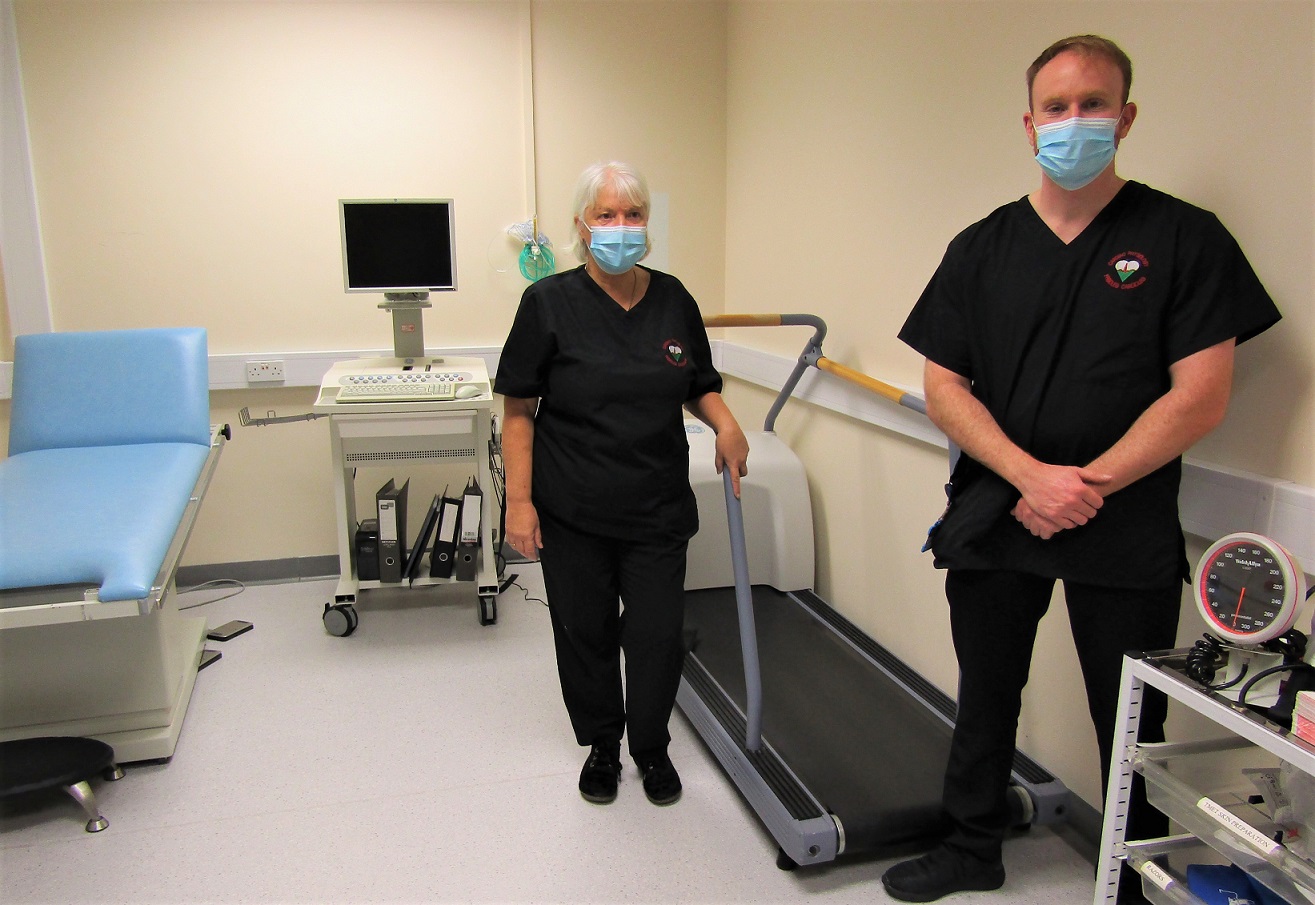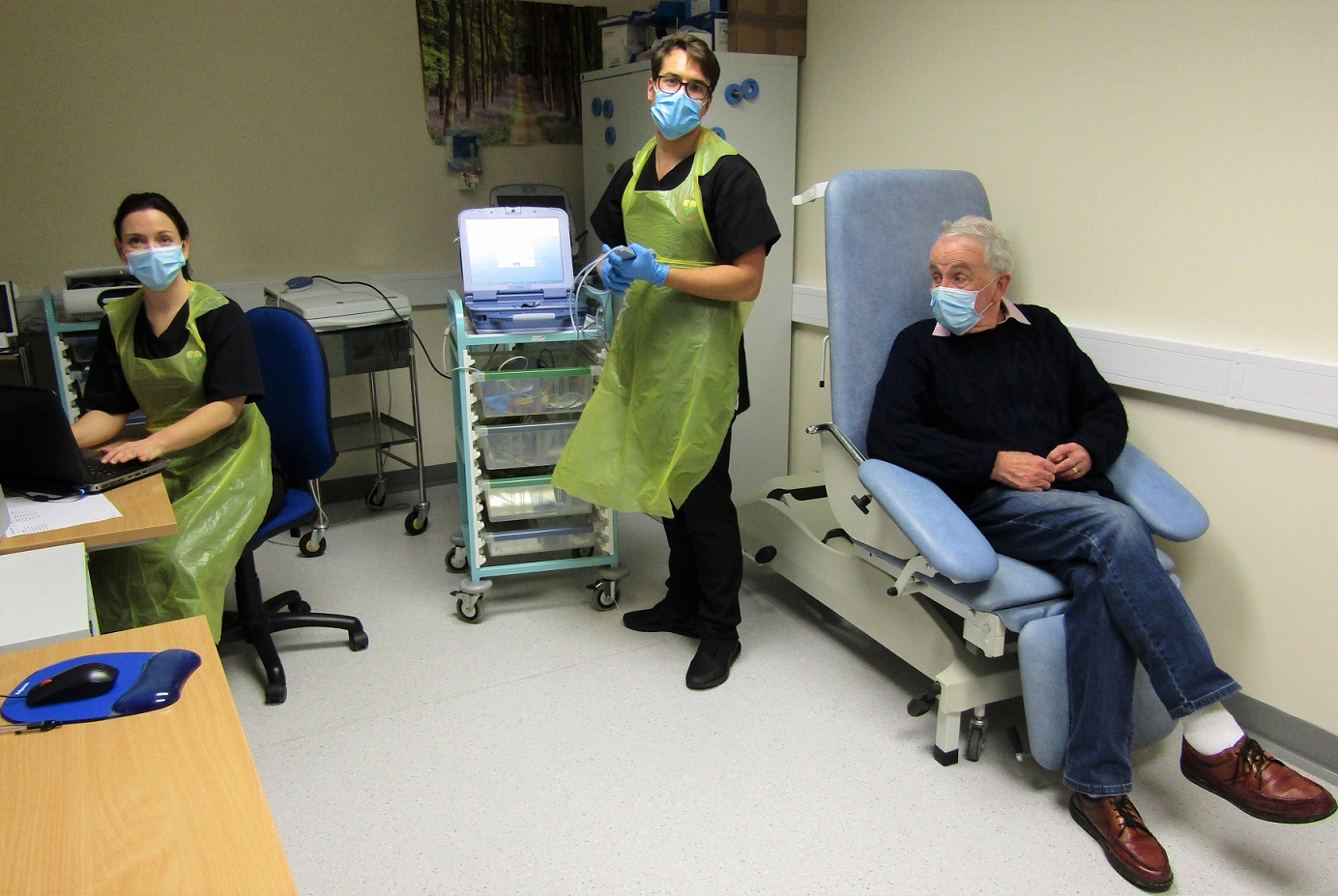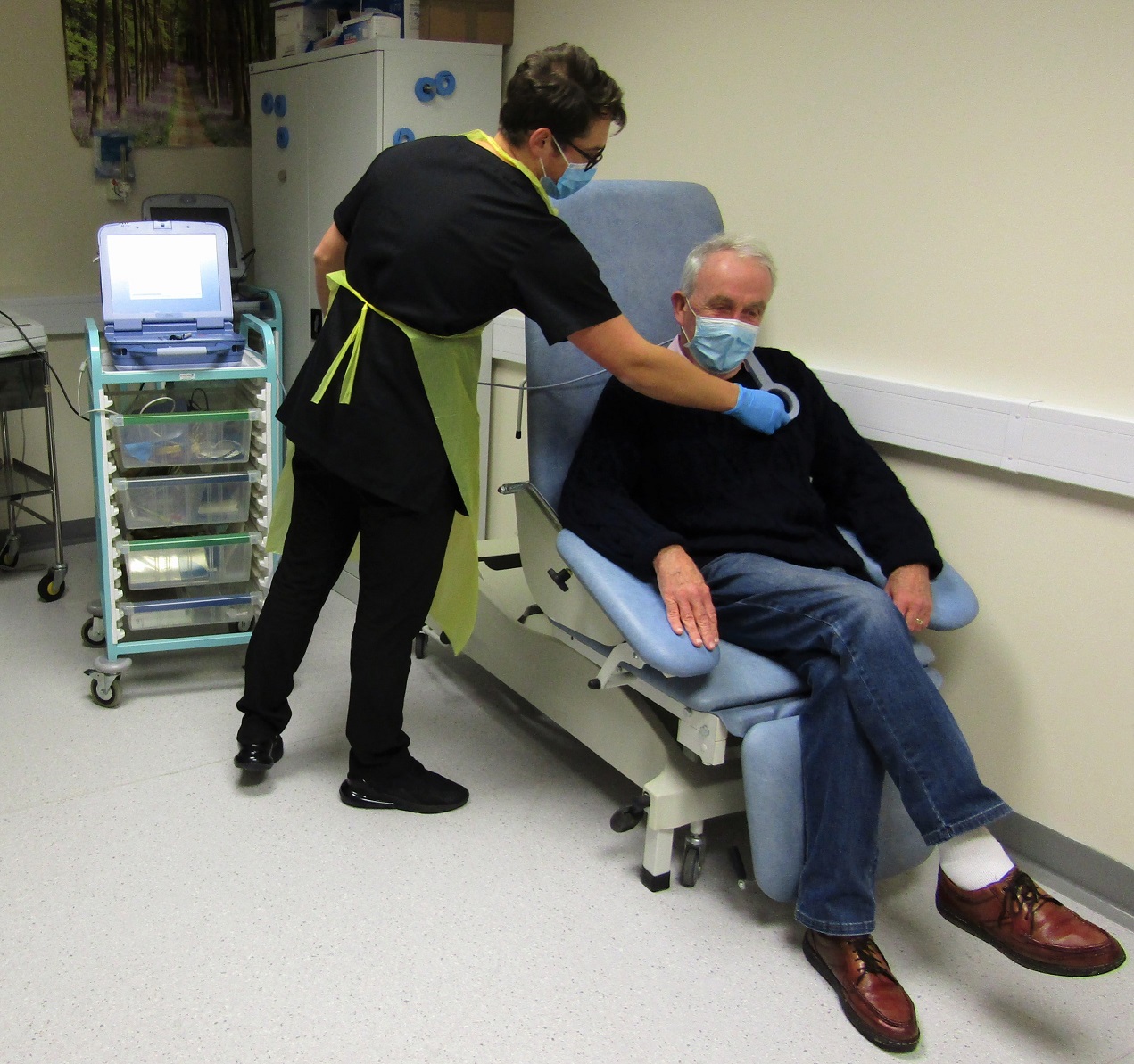Plea for public to heed heart attack warning signs and attend hospital despite Coronavirus fears

PEOPLE have been urged not to ignore signs of a heart attack despite fear of contracting COVID-19.
Throughout 2020 and into the new year there have been hundreds of people experiencing palpitations, chest pains and other symptoms of heart failure and staying at home rather than calling 999 to receive urgent medical attention.
Claire Gallagher-Harrison, Head of Cardiac Physiology at Glan Clwyd Hospital, Bodelwyddan, says the new strain of the virus has increased concerns after confidence was slowly rebuilding following the initial national lockdown.
Reinforcing the Betsi Cadwaladr University Health Board (BCUHB) and Welsh Government Help Us, Help You campaign, she assured the public it is safe to visit the department for vital treatment, including echocardiograms.
“During the first wave of COVID-19 last Spring, even urgent patients would not attend the hospital as they were very frightened, it was unprecedented and unknown,” said Claire.

“We had to cancel all outpatient appointments but because we provide such a key role for wards across the hospital, we continued to provide urgent diagnostic tests.
“Things had picked up again and the winter is usually by far our busiest time of year, but understandably there is uncertainty.
“If invited for a test it is so important people come to see us. We are in a safe environment, we wear PPE for every patient, and have even more rigorous cleaning procedures to ensure there is no risk.
“In fact, to not get checked out could cause damage beyond repair, so we need anyone who feels they are showing signs of heart problems or palpitations to seek help immediately.”

In 1990, Glan Clwyd Hospital carried out around 500 echocardiogram ultrasound scans – known as an ‘echo’ – every year.
Now, that annual figure is more than 8,500, and with people living longer and a rise in the number of heart attacks among adults under 50, Claire says it is vital the warning signs are not ignored.
Due to the challenges of COVID-19, the 23-strong Cardiac Physiology team is still working through the backlog of appointments but are committed to delivering the same level of service and care for patients.
“What was a 45-minute process is now an hour because of the cleaning and preparation involved, to ensure patient and staff safety,” said Claire.
“As a result, we have a longer waiting list. The team has been doing extra work to try and play catch up but it’s difficult when many of us are already on call. We will keep chipping away and do our best, as always.”
Past crises including swine flu, the Ebola virus and SARS (Severe Acute Respiratory Syndrome) caused widespread concern for public health, but Claire says in her 23 years with the NHS, she has never experienced anything like this before.

“Nobody has, it’s unlike any virus we’ve ever come across,” she said.
“And what is worrying is there are still people waiting until the pandemic is over to come and have a scan.
“Who knows when that will be, or whether we will have to live with it? As past weeks have shown, we are not out of this yet.”
Claire added: “We have to be extra cautious because of COVID-19, but we can’t ignore the other health issues we may have.
“That’s always been my biggest concern, that we don’t know what is going on behind the scenes with people who are suffering at home.”
Those words were echoed by Head of British Heart Foundation (BHF) Cymru Adam Fletcher, who said: “It’s vital that we use the lessons learned so far in this pandemic to protect planned heart tests and treatments such as stents, pacemakers and heart surgery so we can avoid deaths that could be prevented.
“If you think you’re having a heart attack or stroke it’s crucial that you call 999 immediately, as every minute counts and prompt treatment saves lives.
“If your heart symptoms are getting worse, get in touch with your healthcare team so that they can reassess your situation. Delaying risks your life and you are more likely to suffer serious heart damage and spend longer in hospital, so don’t hesitate in seeking medical help.”






